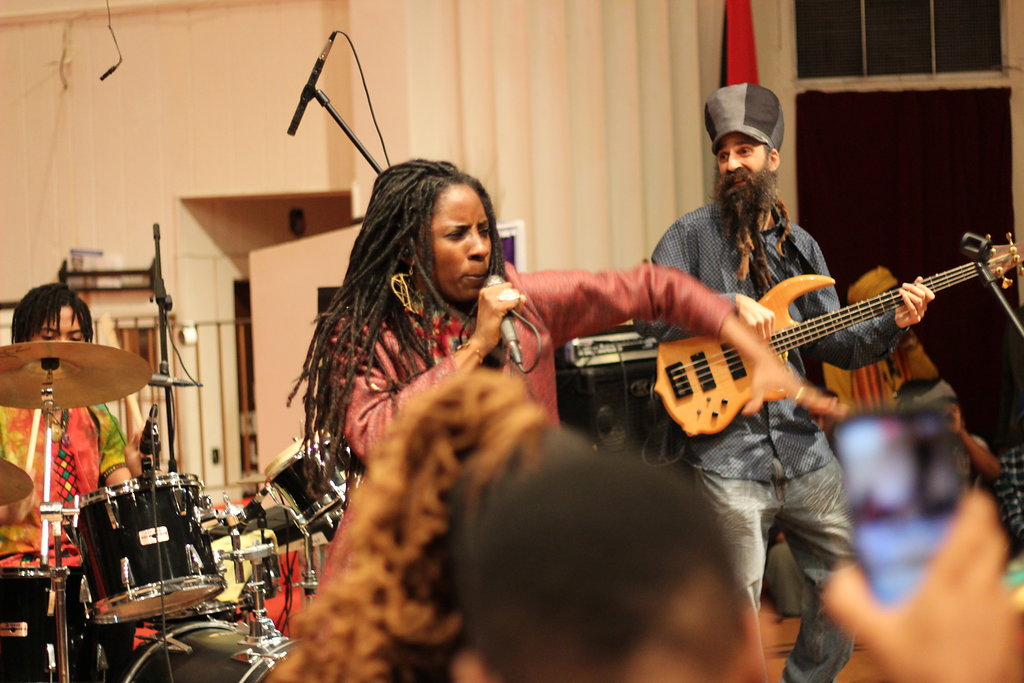Today we’d like to introduce you to Ras Kofi.
Ras, can you briefly walk us through your story – how you started and how you got to where you are today.
Bobfest is in its 8th year. It’s a continuation of a long history in Atlanta of celebrating Bob Marley. I personally took the baton after one of the previous iterations, Bob Marley Atlanta Festival, stopped operating. As a radio person and a proponent of Roots reggae culture, I felt compelled to keep the momentum going. I felt, and still feel like the baton was placed in my hand to maintain something that was way bigger than a personality OR a crew of promoters. Bob Marley’s music has always been a galvanizing tool for a broader sense of community. People from Atlanta can tell you about YEARS of great memories around Bob Marley’s birthdate, and the thing about it is, it largely generated around our radio station WRFG 89.3. There were some pioneers in Atlanta’s reggae scene that set it off, but as a radio station with the legacy of being the voice of the people, the energy naturally gravitated to the radio station. By the time I got to Atlanta in the mid 90’s, it was a HUGE celebration. There were big shows with major reggae groups like Steel Pulse, Abbysinians, Sister Carol, etc. as well as all the reggae bands like Small Axe, Zion Train, Stonefish Posse, etc. It was a large celebration. The radio station also had 24 hours of strictly reggae programming.
We’re always bombarded by how great it is to pursue your passion, etc – but we’ve spoken with enough people to know that it’s not always easy. Overall, would you say things have been easy for you?
Smooth is a relative term. It’s hard to answer that question without addressing the dramatic changes of the society, including politics, which of course influences economics, which includes commerce, the changing means of mass communication, etc. Bobfest emerged at the beginning of Facebook’s popularity, etc. As a matter of fact, I personally engaged on facebook because I quickly saw the way that I could (and did) save THOUSANDS of dollars on promotion. So, that aspect has been a transition. It’s hard to say it’s been rough because we are wired to deal with adversity as par for the course. Possibly the greatest challenge, if you will, has been the creative challenge of developing programming that remains cutting edge, and still relevant and relatable. It’s not just about a party. Throwing a party is the easy part. Our mission has always been about animating the themes of Bob’s music as a convenient stimulant towards deeper conversation. Other than that, it’s always a touch situation when you do something well and makes it look good. For the average person, the assumption is that it’s easy, and also that you couldn’t possibly be in need of assistance.

We’d love to hear more about your business.
Bob Fest ATL is a subsidiary of On Da Farm Pros, a business which promotes and cultivates indigenous culture through the lense of mass communication (including music and radio production), event promotion, and agriculture. Bob Fest ATL is a brand that operates year-round. We have a heavy focus on two annual events, with repeated focus on other times of the year. Those main times are February, Bob’s birth month, and April, the anniversary of one of Bob’s most significant (in his words) performances and campaigns, the independence celebration of Zimbabwe. Beyond the nuanced politics, we see a direct relevance between the initial/ultimate theme of the Zimbabwe revolution and the ongoing process of the attainment of land and food security among the indigenous people of the earth.
We are proud of the fact that our core audience has come to appreciate and expect a deeper conversation in creative tones. We are proud of the alliances we have built with local, national and international businesses AND artists. We are proud of the initiative that we are now into, honoring pioneering community servants in the fields of Visual Arts, Music and Performing Arts, Culinary Arts, and Healing Arts. So much to be proud of. Ultimately, we are most proud of the development of a brand out of an authentic voice of Rastafari, Pan-African, musical participants, world citizens. We feel that when art is presented by artists, instead of corporate heads, it always has a more biting effect.
What were you like growing up?
I was a carefree and very inquisitive, as youth should be. I grew up in the midst of a tense political landscape, so some of my personality was also comparatively serious and focused relative to my peers. A huge part of the influence was vibrant African culture of call and response, song and dance, chants and prayers. So I grew up witnessing first hand the power of the word, particularly the written word and musical expression.


